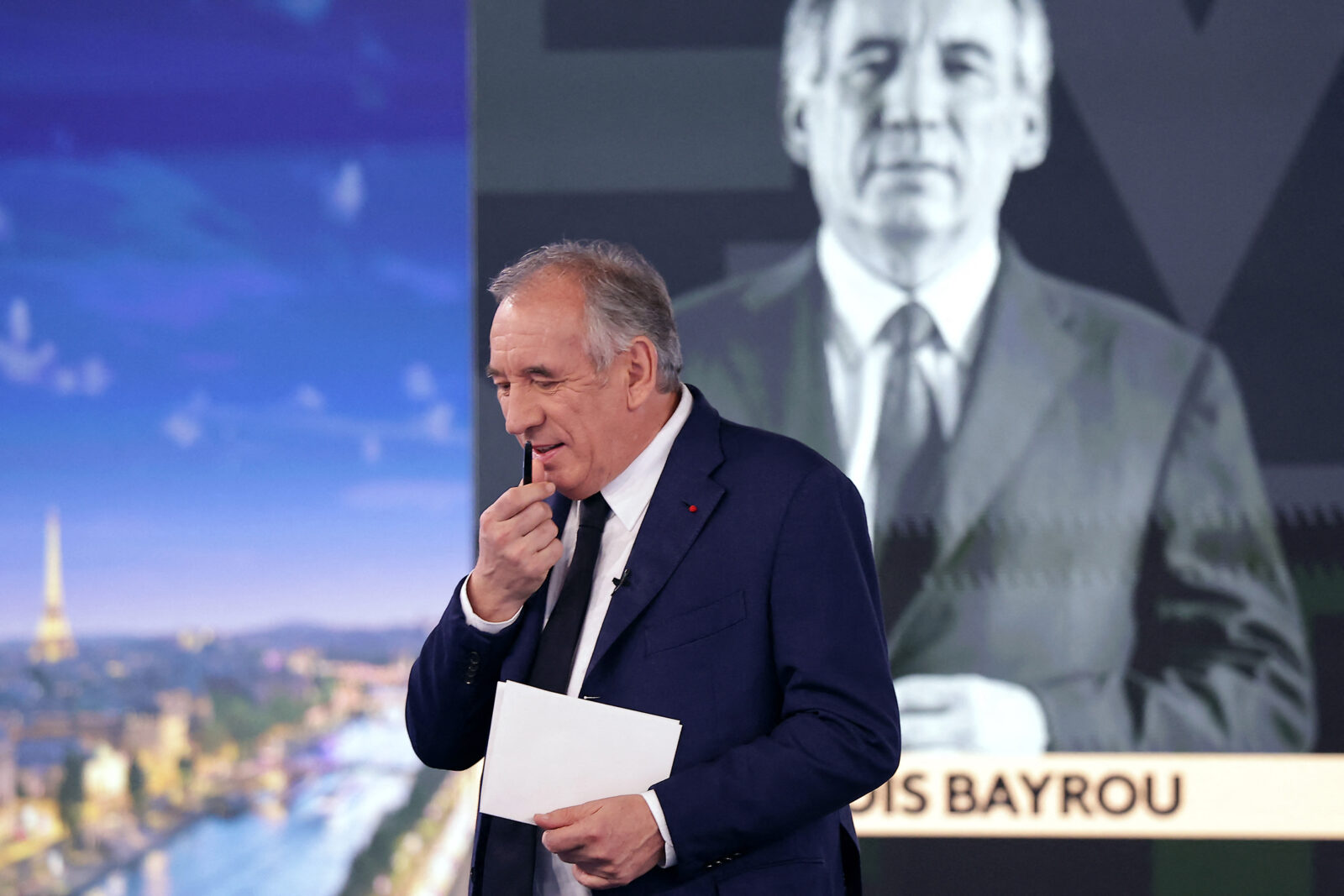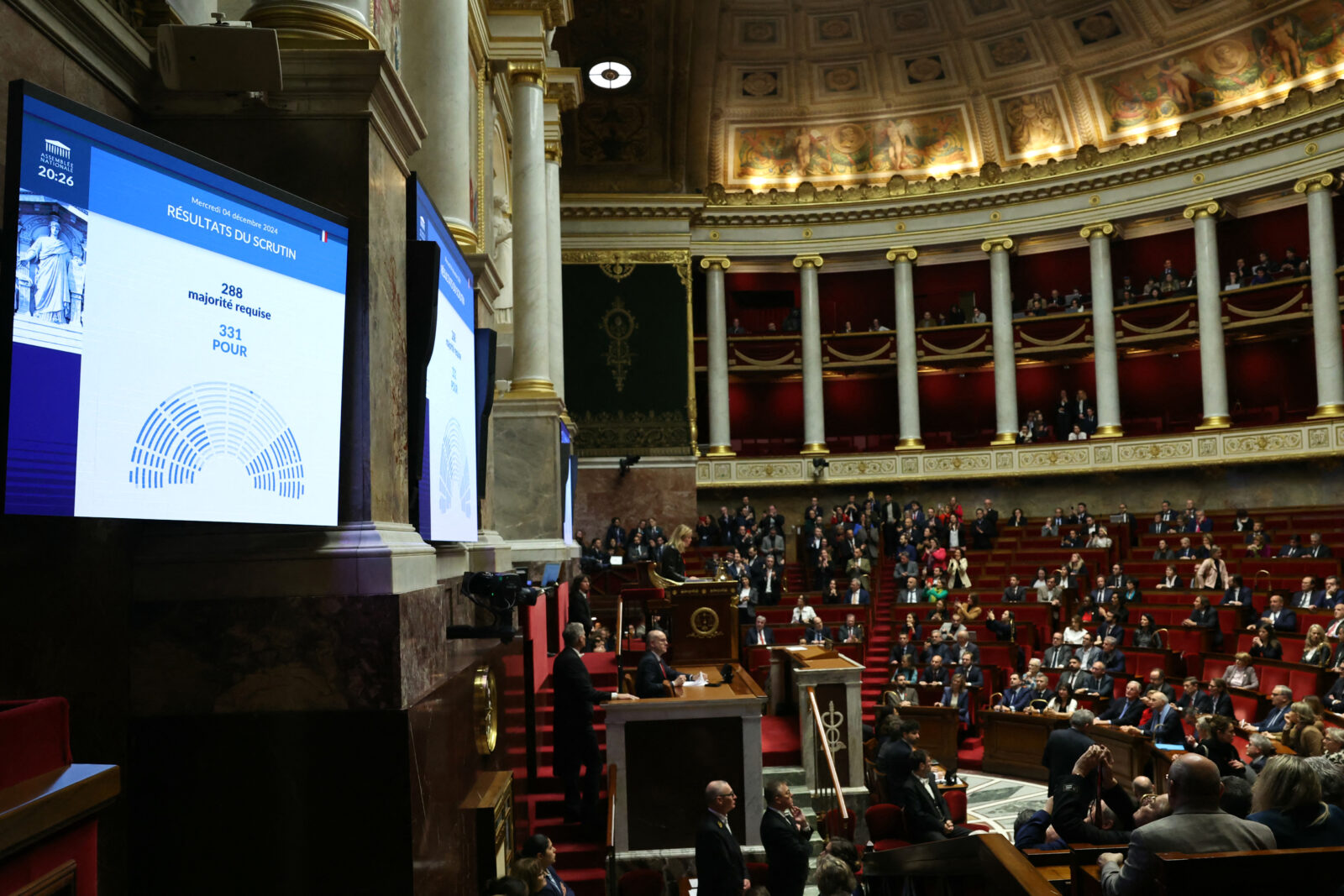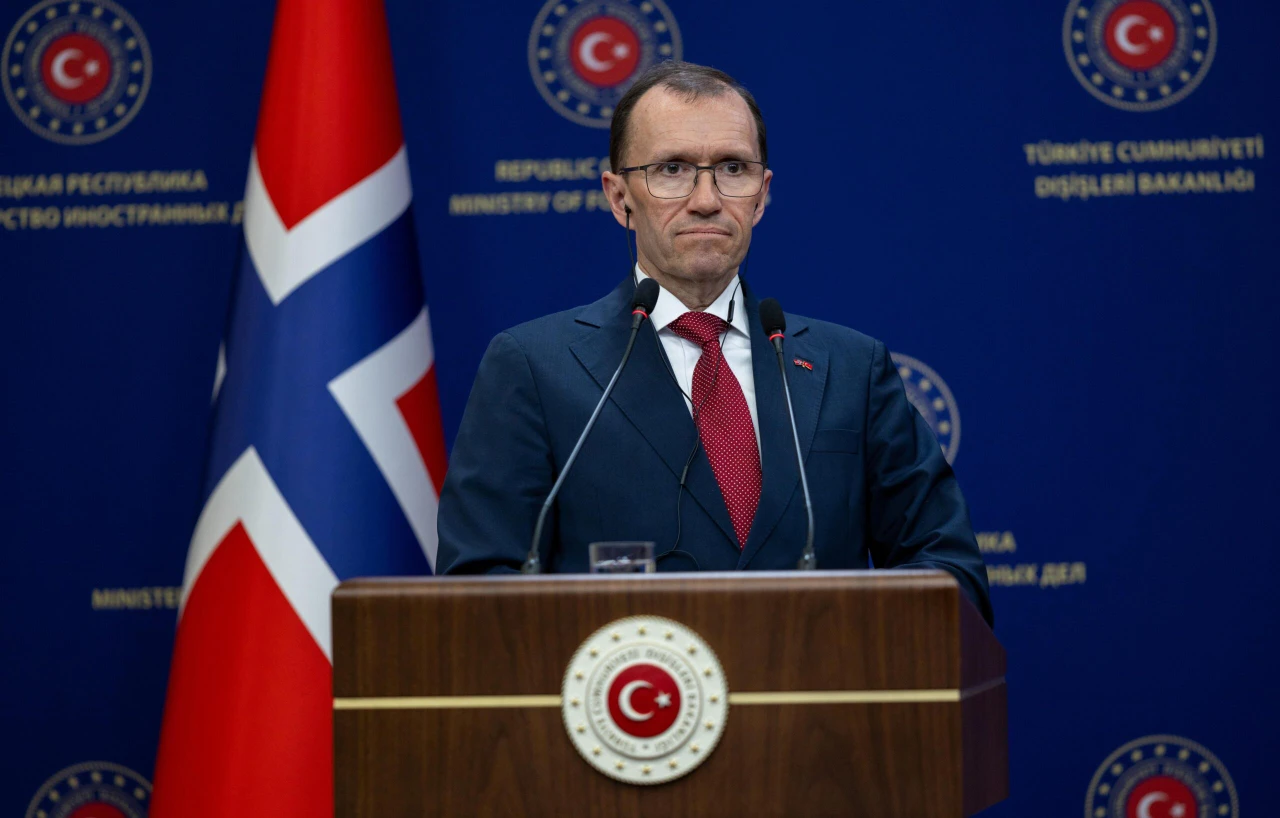France’s Macron appoints new government under Bayrou amid political turmoil
 French President Emmanuel Macron (R) poses with then Pau's Mayor Francois Bayrou (L) on the balcony of the city hall during a visit in Pau, southwestern France, July 6, 2023. (AFP Photo)
French President Emmanuel Macron (R) poses with then Pau's Mayor Francois Bayrou (L) on the balcony of the city hall during a visit in Pau, southwestern France, July 6, 2023. (AFP Photo)
French President Emmanuel Macron named a new government Monday evening, assembling a team led by Francois Bayrou, his fourth prime minister of the year, in a bid to steer the European Union’s second-largest economy out of political crisis.
Macron appointed former Prime Minister Elisabeth Borne, 63, as education minister in the new cabinet under centrist Bayrou, announced Elysee secretary-general Alexis Kohler.
Former premier Manuel Valls, 62, returned as overseas territories minister, while former interior minister Gerald Darmanin was named justice minister.
Defence and Foreign Ministers keep post
Both Defense Minister Sebastien Lecornu and Foreign Minister Jean-Noel Barrot retained their posts, according to the presidency.
Lecornu, a 38-year-old loyalist with a sharp political instinct, has served in every government since Macron’s first presidential election in 2017.
Conservative Interior Minister Bruno Retailleau, who has pledged to crack down on illegal immigration, and right-wing Culture Minister Rachida Dati also remained in their roles.
Eric Lombard, head of public-sector lender Caisse des Depots (CDC), was appointed economy minister, tasked with the challenging job of delivering a budget plan for next year.
“I’m very proud of the team we’re presenting this evening,” Bayrou said on X, adding that his “experienced” cabinet would aim to “rebuild trust.”
The inclusion of two former prime ministers signals Macron’s intention to build a robust government capable of withstanding political instability. This move comes after Bayrou’s predecessor, Michel Barnier, was ousted in a no-confidence vote.

Bayrou had aimed to bring in figures from across the political spectrum—left, right, and center—to protect his government from potential censure. However, his 35-member cabinet does not include any members of the left-wing New Popular Front coalition.
Macron will convene Bayrou’s government for the first Council of Ministers meeting on January 3, the presidency said.
Barnier was ousted after failing to secure support for an austerity budget intended to stabilize France’s fragile finances through spending cuts and tax hikes.
Bayrou, 73, faces the immediate challenge of ensuring his government survives a no-confidence vote and passes a cost-cutting budget for 2025.
The return of Valls, who served as prime minister from 2014 to 2016, as head of the overseas territories ministry underscores the importance of the role following severe criticism of the government’s response to a deadly cyclone in Mayotte. The cyclone claimed at least 35 lives in France’s poorest overseas territory.
Darmanin had long aspired to the foreign ministry, but after days of intense negotiations, he was reassigned to the justice ministry.

‘New government back far-right’
Just before the official announcement, prominent right-wing politician Xavier Bertrand, who was expected to become health minister, announced he would not be part of the government. He claimed the new cabinet was formed with the implicit “backing” of far-right leader Marine Le Pen, who is expected to play a critical role in ensuring the government’s survival.
“The prime minister informed me this morning, contrary to what he proposed yesterday, that he was no longer in a position to offer me the justice ministry due to opposition from (Le Pen’s) National Rally,” Bertrand said in a statement.
“Despite his new proposals, I refuse to be part of a government of France formed with the backing of Marine Le Pen.”
Bertrand has long been a staunch opponent of the far right.
Le Pen faces an embezzlement trial on March 31, 2025, on charges she denies. A conviction could bar her from running in the 2027 presidential election, potentially derailing her best chance yet to win the presidency.
The announcement came as France observed a national day of mourning for victims of the cyclone in Mayotte.
Bayrou, head of the centrist MoDem group allied with Macron’s party, was appointed prime minister on December 13. He is the sixth prime minister under Macron’s presidency.
Many observers predict Bayrou will face significant challenges in maintaining his position.
France has been paralyzed by political deadlock since Macron’s failed gamble on snap elections this summer, which resulted in a fractured parliament split between three rival blocs.
Le Pen suggested Macron’s political standing has been severely weakened by the ongoing crisis and predicted he will eventually be forced to resign.
“I am preparing for an early presidential election,” Le Pen told French daily Le Parisien last week.



